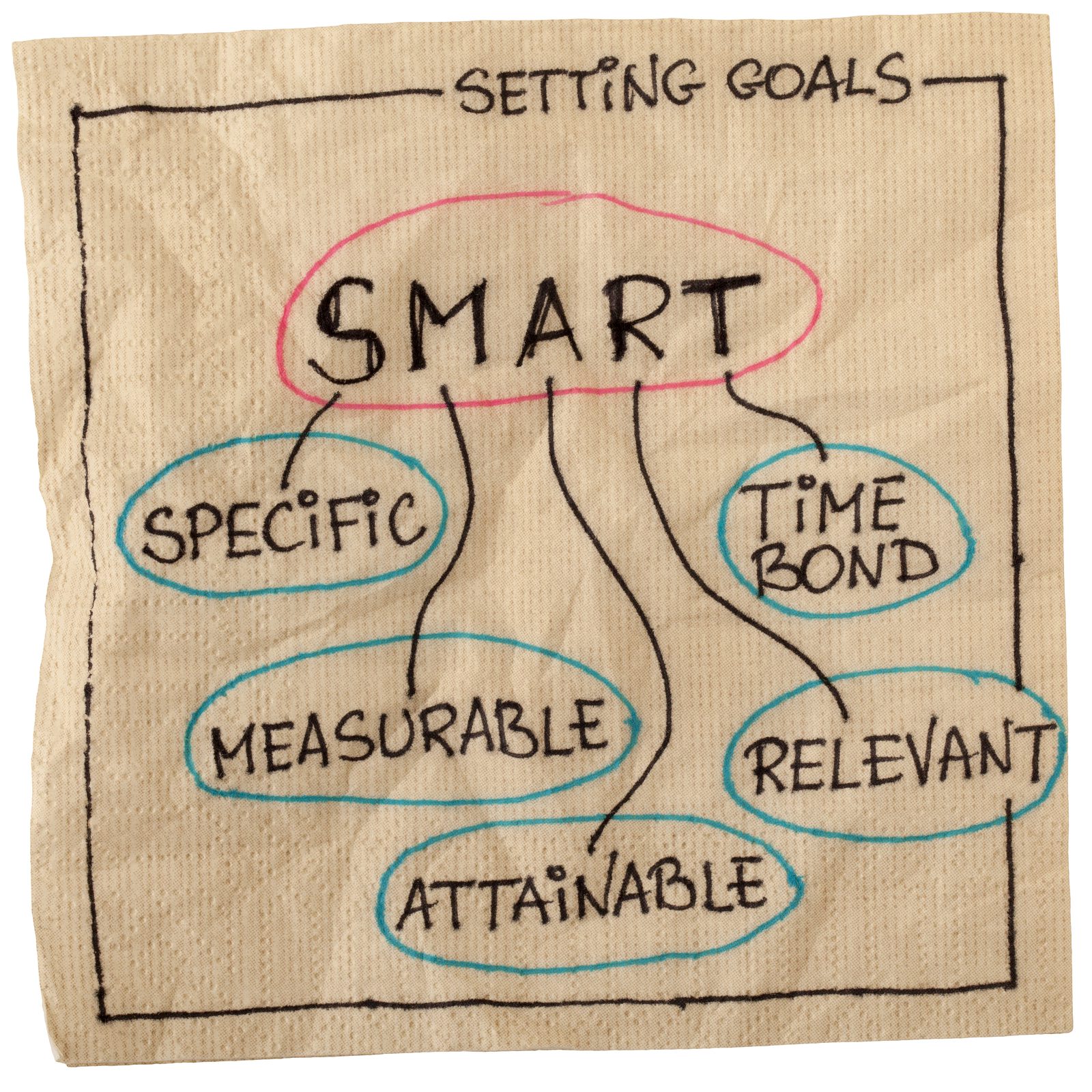 As 2019 winds down, our minds are filled with holiday plans, a long list of to-dos, and the beginning stages of setting resolutions for 2020. Goal setting is important because goals give us direction and help to build confidence. Goals are what take us forward in life and guide us on the path to achieving our true desires. It has been stated by the motivational speaker Zig Ziglar that “a goal properly set is halfway reached.” This statement cannot be more accurate!
As 2019 winds down, our minds are filled with holiday plans, a long list of to-dos, and the beginning stages of setting resolutions for 2020. Goal setting is important because goals give us direction and help to build confidence. Goals are what take us forward in life and guide us on the path to achieving our true desires. It has been stated by the motivational speaker Zig Ziglar that “a goal properly set is halfway reached.” This statement cannot be more accurate!
Benefits of goal setting:
- Goals trigger behavior and motivate. Goals motivate you and organize your focus toward an actionable behavior. By identifying a goal, you give yourself a concrete endpoint to aim for and get excited about.
- Goals give direction. Even with all the potential in the world, without a goal, your abilities and talents are useless. When a goal is set, you will direct your attention to the next step and lead yourself in a direction that forces your action and behavior to follow. As they say, “Whatever the mind believes the body achieves.”
- Goals measure progress. By setting goals, you can assess your growth and movement towards reaching an objective because you have a defined endpoint to compare with.
- Goals sustain momentum. Seeing progress is addicting. Your body releases dopamine (a feel-good chemical in the body) after attaining a reward. This leads to other behaviors that continue moving yourself toward your target.
- Goals help with procrastination and accountability. When a goal is set, you make yourself accountable to finish the task. Goals stick in your mind and give you reminders to continue with your plan of action.
How to set goals:
While the above information stresses the importance of setting goals, you may be asking yourself, how do I begin? You may have heard the term SMART goals before. SMART goals help to clarify your ideas, focus your efforts, allow for time and resources to be used productively, and increase your chances of achieving what you want in life.
To make sure your goals are simple, clear, and reachable, each one should be:
- Specific: Your goal should be clear and specific to help focus your efforts and provide motivation. Use the following questions to help guide you:
- What do I want to accomplish?
- Why is this goal important?
- What resources are involved?
- Measurable: It is important to be able to measure your goal to track your progress. This helps you feel the excitement of getting close to achieving your goal. Try answering the following:
- How much?
- How many?
- How will I know when it is accomplished?
- Achievable: Your goal needs to be realistic to be successful. Although it should stretch your abilities, your goal should remain possible. Answer the following:
- How can I accomplish these goals?
- How realistic is the goal, based on other factors, such as time, money, childcare, etc.
- Relevant: Make sure that your goal matters to you and you really know why you are setting it. Ensuring that it is aligned with other relevant goals is important, as well. A relevant goal can answer “yes” to the following questions:
- Does this seem worthwhile?
- Is it the right time?
- Is it aligned with my overall objectives?
- Time-bound: Every goal needs a target date so you can have a deadline to focus on. This helps everyday tasks and time-sucking activities (i.e. social media) from taking priority over your longer-term goals. A time-bound goal will answer the following:
- When?
- What can I do six months from now?
- What can I do six weeks from now?
- What can I do now?
For example, instead of having a typical goal of “I want to lose weight,” the above steps can be used to transition this into a SMART goal:
- Specific: I want to lose 10 pounds; this is clear whereas “I want to lose weight” is vague
- Measurable: I will weigh myself weekly; this gives an objective comparison
- Attainable: I want to lose a half pound a week through dietary changes and exercise; this is a realistic amount of weight loss
- Relevant: I want to lose weight to help reduce my health risks and I want to be able to have the energy to run around with my grandkids; this shows how reaching the goal will positively impact your life
- Time-bound: I want to lose 10 pounds by Memorial Day; this gives a distinct endpoint
SMART Goal: I want to lose 10 pounds by Memorial Day by changing my diet and incorporating exercise into my life. I will measure my weight on the scale weekly to track my progress and will aim for a half pound weight loss per week. Losing this weight will help reduce my risk of health factors and will give me the energy and ability to run around with grandkids for years to come.
Need a little more assistance with your goals? Contact Merritt Clubs’ Nutrition and Wellness team today to get support in helping make your 2020 resolutions a reality.
Resources:
https://www.mcckc.edu/counseling/goal-setting/docs/SMARTGoalWorksheet.pdf
https://www.codeofliving.com/5-powerful-reasons-goal-setting-important/


